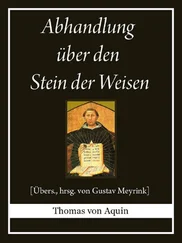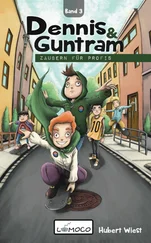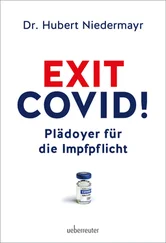Hubert Aquin - Next Episode
Здесь есть возможность читать онлайн «Hubert Aquin - Next Episode» весь текст электронной книги совершенно бесплатно (целиком полную версию без сокращений). В некоторых случаях можно слушать аудио, скачать через торрент в формате fb2 и присутствует краткое содержание. Год выпуска: 2001, ISBN: 2001, Издательство: McClelland & Stewart, Жанр: Современная проза, на английском языке. Описание произведения, (предисловие) а так же отзывы посетителей доступны на портале библиотеки ЛибКат.
- Название:Next Episode
- Автор:
- Издательство:McClelland & Stewart
- Жанр:
- Год:2001
- ISBN:9781551996240
- Рейтинг книги:3 / 5. Голосов: 1
-
Избранное:Добавить в избранное
- Отзывы:
-
Ваша оценка:
- 60
- 1
- 2
- 3
- 4
- 5
Next Episode: краткое содержание, описание и аннотация
Предлагаем к чтению аннотацию, описание, краткое содержание или предисловие (зависит от того, что написал сам автор книги «Next Episode»). Если вы не нашли необходимую информацию о книге — напишите в комментариях, мы постараемся отыскать её.
is a disturbing and yet deeply moving novel of dissent and distress. As he awaits trial, a young separatist writes an espionage story in the psychiatric ward of the Montreal prison where he has been detained. Sheila Fischman’s bold new translation captures the pulsating life of Aquin’s complex exploration of the political realities of contemporary Quebec.
Next Episode — читать онлайн бесплатно полную книгу (весь текст) целиком
Ниже представлен текст книги, разбитый по страницам. Система сохранения места последней прочитанной страницы, позволяет с удобством читать онлайн бесплатно книгу «Next Episode», без необходимости каждый раз заново искать на чём Вы остановились. Поставьте закладку, и сможете в любой момент перейти на страницу, на которой закончили чтение.
Интервал:
Закладка:
“To the chateau!”
Giving that order let me regain full possession of my strength. Slumped on the seat, I was thinking with salutary certainty that I was on my way to a positive result, at one masterstroke getting rid of H. de Heutz and then, free as the breeze, joining K on the terrace of the Hôtel d’Angleterre. A few minutes later the taxi stopped at the gate to the Necker estate. To allow the driver time to turn around and head back towards the village, I pretended to be studying the decrepit front of the chateau and the wrought-iron gate that kept people out. As soon as I could no longer see the taxi, I started walking like a solitary stroller along the narrow road that turns sharply to follow the edge of the forest. There was no one around. The rustling of leaves, the song of the birds and of the wind from the moraine filled the pastoral silence of nature. Then the small blue shape of the Opel came into sight through a clump of trees. I stopped briefly, alert for any strange rustling that would warn of an enemy presence. But there were no false notes in the smooth murmur of this beautiful summer day. Cautiously, I took a few steps in the forest and found myself back in the place that I’d fled just a few hours earlier. The trunk of the car was still open, the door was swaying feebly in the wind. I closed it, unable to do so silently. I had no trouble spotting the proper key, which I inserted in the ignition to get the little Opel on the road.
The key chain held four keys in all: now I’d just have to try the three others in the lock of the Château d’Echandens. One of them would surely give me access to the chateau, to which I’d decided to return. A search, even a hasty one, would certainly tell me something and perhaps I’d make some discoveries that would help us unmask our enemies. Moreover, by gaining admittance to the chateau I would thwart all the expectations of H. de Heutz, who might suddenly materialize in my sights, a perfect target, paralyzed with stupor. I just had to take one precaution as I entered the grounds: conceal the blue Opel perfectly, preferably in the garage, since that was where the other person had got into the car that had escorted me to Geneva, following me at the very moment when I was going to kill H. de Heutz. Since then, H. de Heutz and his blonde associate must have been looking for me with something resembling rage. They’ll come back to their chateau for some peace and quiet eventually, with no idea that it’s in their stronghold that I’ve taken refuge. My strategy can only disconcert them: of its kind it’s a small masterpiece. The Prussian blue Opel cabriolet will serve as my Trojan horse to beleaguer the enemy citadel. I, revolutionary agent twice caught off guard, had in a sense disguised myself as H. de Heutz, arrayed in his blue cuirass, outfitted with his false identities, and bearing his heraldic keys. And in that guise I was about to gain admittance to the grand salon where I too will turn my back on the Dents du Midi that were illuminated this morning beyond the big French doors. One thing is certain, my plan is something of a challenge, for according to the current logic of our profession, it could strike one as a rash undertaking par excellence. This illogical appearance, however, is its most formidable quality: it’s a counter-disguise! Yes, I’m an innovator. I no longer disguise myself as a tree branch or an innocuous stroller or a bearded tourist weighed down with loaded cameras; my disguise is now that of a victim of the stunning murder I’m about to commit. I take his place behind the wheel of a blue Opel; soon I’ll be part of his furniture — indeed, I’m nearly inside his very skin …
While I was thus airing my opinion about certain practical concerns pertaining to the murder of H. de Heutz, alias Carl von Ryndt, alias François-Marc de Saugy, the road from Coppet to Rolle was giving me a quick look at the far shore of the lake, a veritable archipelago of rocks and fields of black ice. On the other side, immobile France was running towards the mouth of a river as I drove along at a good clip. As soon as the road cleared a little, I pushed it as hard as I could, making the internal revolutions scream. From Rolle to Aubonne, from Aubonne to Renens, I drove like a sensible adult. Then, shortly after leaving Renens en route to Echandens, I spied across the fields the jagged shape of the chateau, half-hidden by a clump of trees: a dark mass, disproportionate with the little village of Echandens huddled around that enigmatic monster. Discreetly, I parked the car on the shoulder; I even turned off the ignition. To tell the truth, I had the jitters. Suddenly, even before I went on stage, I was uncontrollably agitated. It was dread that was keeping me inside the Opel, even if this was a danger zone where any of the locals could identify the little blue car and would be surprised that its owner wasn’t at the wheel. The Trojan horse galloped by night, and I dreamed of realizing the same exploit in daylight under this beautiful sun. Sheer madness! Echandens is small: the whole village would know if a stranger was inside its walls. My scheme bore an odd resemblance to Russian roulette.
I lingered at this spot close to the chateau and even closer to the first houses of the village. An emotion that I couldn’t name, unless it was fear, was keeping me there, so close to the danger, in a somnolent state: that, of course, was more a result of the heat and my fatigue than a symptom of my jitters. I stood there, unable to hurry matters, lacking the blinding certainty that urges one to act. I was sinking into debility as into a comfortable bed without putting up the slightest resistance to this generalized bliss. Thus positioned on the outskirts of a battlefield, I ignored everything except my developing numbness and my drift into a fluid and hypnotic respite. I sat there motionless under a roof overheated by the sun, my gaze lost in this elevated plain that could be a slope of the Jura or of the Pre-Alps. I was no longer determined to stay on this road that turns sharply on its way into Echandens; I could fit my spirit to nothing but the paralysis that was gaining on it.
I’ve stopped moving. To tell the truth, the disturbance no longer affects me: its very impact breaks down into an infinite number of interruptions whose amplitude grows as their frequency increases. Lethargy settles into me solemnly and vigorously in the form of an ecstatic fall. Inside my steel shell I’m as motionless as a Vedic priest; I linger religiously along the way as I approach the stage I’m to appear on. I don’t hesitate, rather I feel as if I’m on my last legs, as if I’ve been injected with a dark cantharis. Nothing more appears on the horizon: neither the Fribourg Alps nor the domes of the Jura nor any hope of getting out of this unscathed. Nothing, not even the surety that in a certain number of days I’ll be able to circulate at will, to stroll aimlessly among crowds of people between the windows of Morgan’s department store and the stores on Peel Street. No, I don’t even know if I’ll be able to lounge around for a few hours or days when I’m in the mood, or do nothing and improvise my idleness, choosing my own procedures and place: to hesitate between Café Martin and the Beaver Club, to linger at the bar of the Holiday Inn between a Cutty Sark and the darkly shadowed eyes of the woman I love. Hesitation itself would be a form of movement. But I’m not stirring, I am gliding, motionless, gorged with memories and uncertainties, through poisonous water. Nothing files past now as on the day of our fête nationale : my windshield still opens onto the same slice of the Vaudois plateau where a chateau is located that I’m not going to. And between it and me I maintain a distance equal to that separating me from our bedroom on that June 24. This evening it’s as hot inside me as in the stifling countryside around Echandens and on the bed strewn with cushions where we ushered in a tragic season. It’s as hot inside me as it was that night when a secret upheaval made the entire town shudder with the convulsions that shook our bodies. Unmoving, I watch my own nothingness pass by; unmoving, I’m like the chateau of Echandens I see now, solid as the snow that buried our first kiss. The reality around and within me is outstripping me: a thousand dazzled crystals stand in for the passing of time. I am stopped in my race. Nothing moves forward except my hypocritical hand across the paper. And from this lingering residuary movement I infer the brain activity that controls it, the embryonic waves that survive imperceptibly during a coma and contradict it since it contains the very principle of its opposite. My cursive handwriting bears witness to a second genesis that, though reduced to zero, is not altogether stopped, simply because my hand doesn’t stop racing. And so my torpor is merely a sudden and transient death. From my hand’s vibratory course, I deduce that a manic river is discharging into my cephalic vein, its tumult displacing my names, all my childhoods, my failures, and whatever is left of my nights of love. This polluted trickle that gushes onto the page transports me utterly into the confusion of a flight. An uncertain Nile seeking its mouth, this driving current writes to me on the sand along the pages that still separate me from the lugubrious delta. Before me stand unprecedented acts: chateaus, women, hours, centuries. Awaiting me, too, are entire chapters on guerrilla tactics in the heart of Montreal and the record, suicide by suicide, of our unwilling revolution.
Читать дальшеИнтервал:
Закладка:
Похожие книги на «Next Episode»
Представляем Вашему вниманию похожие книги на «Next Episode» списком для выбора. Мы отобрали схожую по названию и смыслу литературу в надежде предоставить читателям больше вариантов отыскать новые, интересные, ещё непрочитанные произведения.
Обсуждение, отзывы о книге «Next Episode» и просто собственные мнения читателей. Оставьте ваши комментарии, напишите, что Вы думаете о произведении, его смысле или главных героях. Укажите что конкретно понравилось, а что нет, и почему Вы так считаете.












